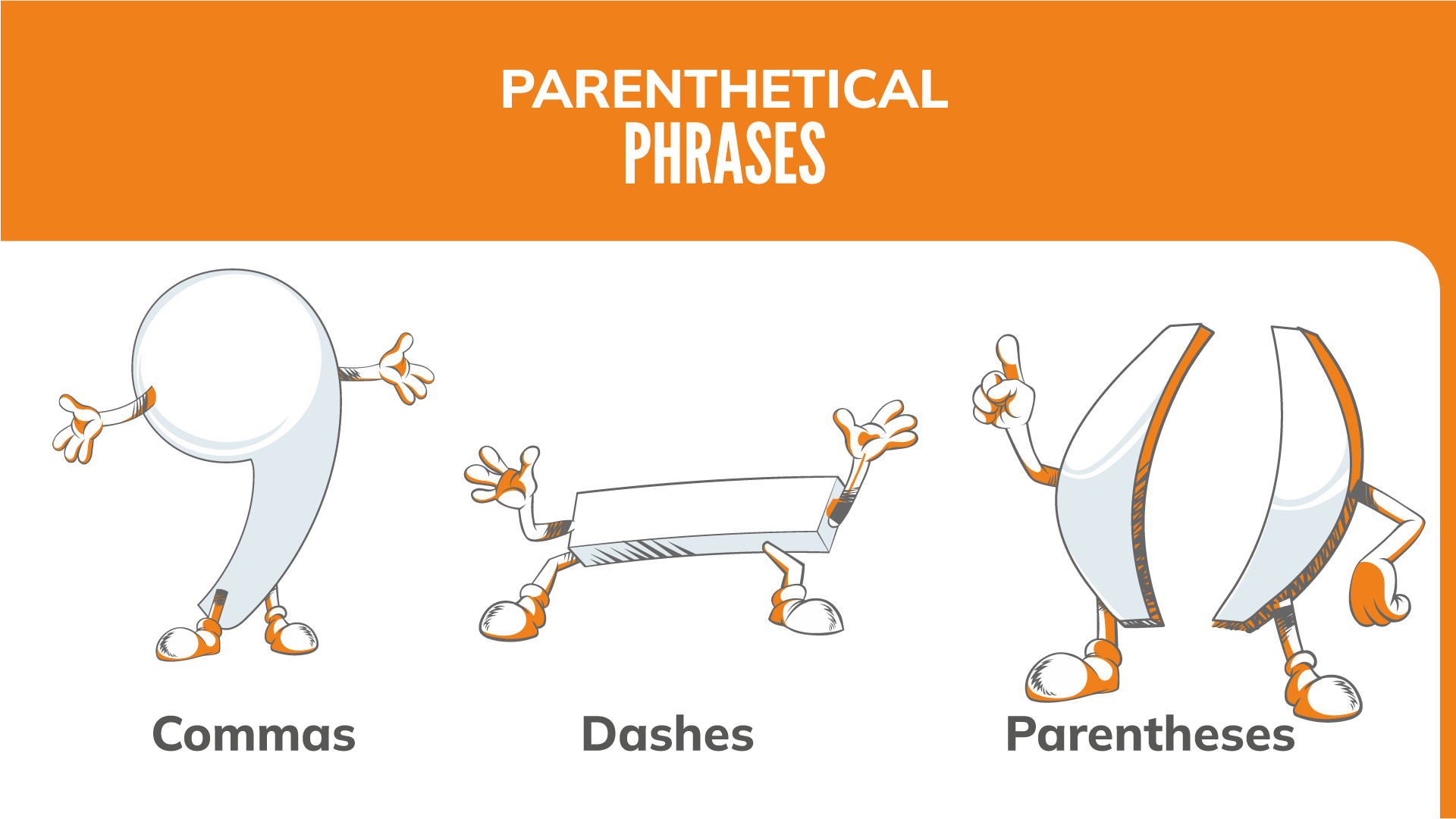
Uncover the Past Secrets at Imperial War Museum
Step into the past and experience real stories at London’s iconic Imperial War Museum. From life-size warplanes to personal letters and powerful exhibitions, this place brings history to life.

Like our Post? Share Now!
Parenthetical phrases make your writing richer, clearer, and more engaging—but they can be tricky for English learners. This guide explains how to use parentheses, dashes, and commas in simple steps, with examples and easy tips so you can write like a pro.
Have you ever been reading and noticed a little “extra” bit of information tucked inside a sentence? That’s a parenthetical phrase—like a whispered secret in your writing.
A parenthetical phrase adds extra details, clarifies meaning, or gives side information without changing the main idea. If you remove it, the sentence still makes sense.
Example:
Parenthetical phrases are often used to:
They can appear:
In English, we can use parentheses, dashes, or commas. Each has its own “personality.” Let’s meet them.
Personality: Quiet, polite, and discreet. Parentheses are like little bubbles that hide your extra thoughts.
Example:
Here, “a great weekend activity for students taking English classes in London” is bonus information. It’s not essential, but it’s interesting.
Tips for using parentheses:
Personality: Dramatic and attention-grabbing. Dashes shout, “Hey, this is important or surprising!” They work well for emphasis.
The city—especially for students enrolled in language classes London—comes alive at night.
Here, “especially for students enrolled in language classes London” adds emphasis, making it feel more vivid.
Tips for using dashes:
Personality: Friendly and flexible. Commas are the most common way to add parenthetical phrases, especially in everyday writing.
Sarah, who used to browse ‘learn English classes near me’, is visiting London next week.
The commas show the extra info “who used to browse ‘learn English classes near me’ without breaking the flow.
Tips for using commas:
A parenthetical phrase is optional. If removing it changes the sentence’s meaning completely, it’s not a parenthetical phrase.
Example:
So, parenthetical = nice to have, not need to have.
One tricky part for learners is deciding where to put the parenthetical phrase.
The easiest rule is:
Example:
You should also think about flow—your sentence should be smooth before and after the phrase. Try reading it aloud without the parenthetical part. If it feels strange, you might need to change the order.
She loves travelling, especially Paris (her favourite city,—and London). ✔ Use either parentheses, dashes, or commas—not a mix.
Too many parenthetical phrases can make your sentence messy. Keep them meaningful.
If your sentence ends with a parenthetical phrase, put the full stop outside the brackets unless the whole sentence is inside.
Example:
We went to Hyde Park (and got caught in the rain).
(It was one of the best days in London.)
Choose the correct punctuation for each sentence:
Check out the correct answers here!
Think of parentheses, dashes, and commas like three different camera lenses. Each one gives a different focus and feeling to your writing. Choose the one that matches your tone—formal, casual, or creative.
Ready to take your English to the next level? Enquire today about our courses at ES London—the friendly English language institute where learning is clear, fun, and practical.
Like what you read? We love to keep you updated about everything at ES. Check out our different courses, exciting facts about London, news, updates, amazing success stories from us and much more.

Step into the past and experience real stories at London’s iconic Imperial War Museum. From life-size warplanes to personal letters and powerful exhibitions, this place brings history to life.

Looking for ways to explore London with ease? Discover the top apps that will transform your smartphone into the ultimate travel buddy, making every trip around this bustling city a breeze.

London students—this is your food shopping guide to find discounts, markets and places to shop at affordable rates. Whether you live in London or just moved in, this blog is for you!
We don't say that,
At ES Education, we make learning English a memorable and fun experience for every student. We pride ourselves in the family-like atmosphere of our school. By learning and discovering London with us in a diverse community, your school will become a second home!